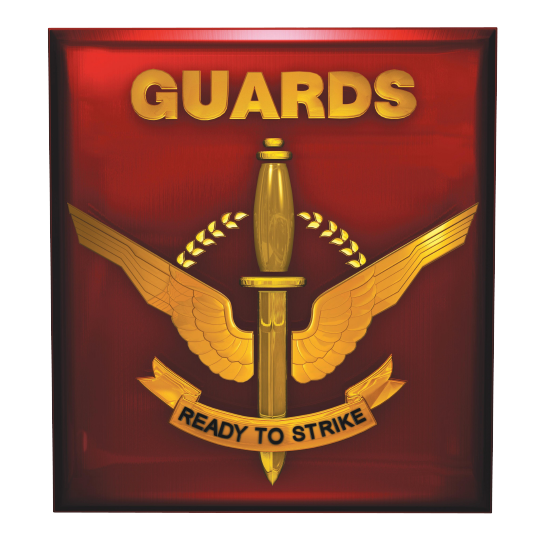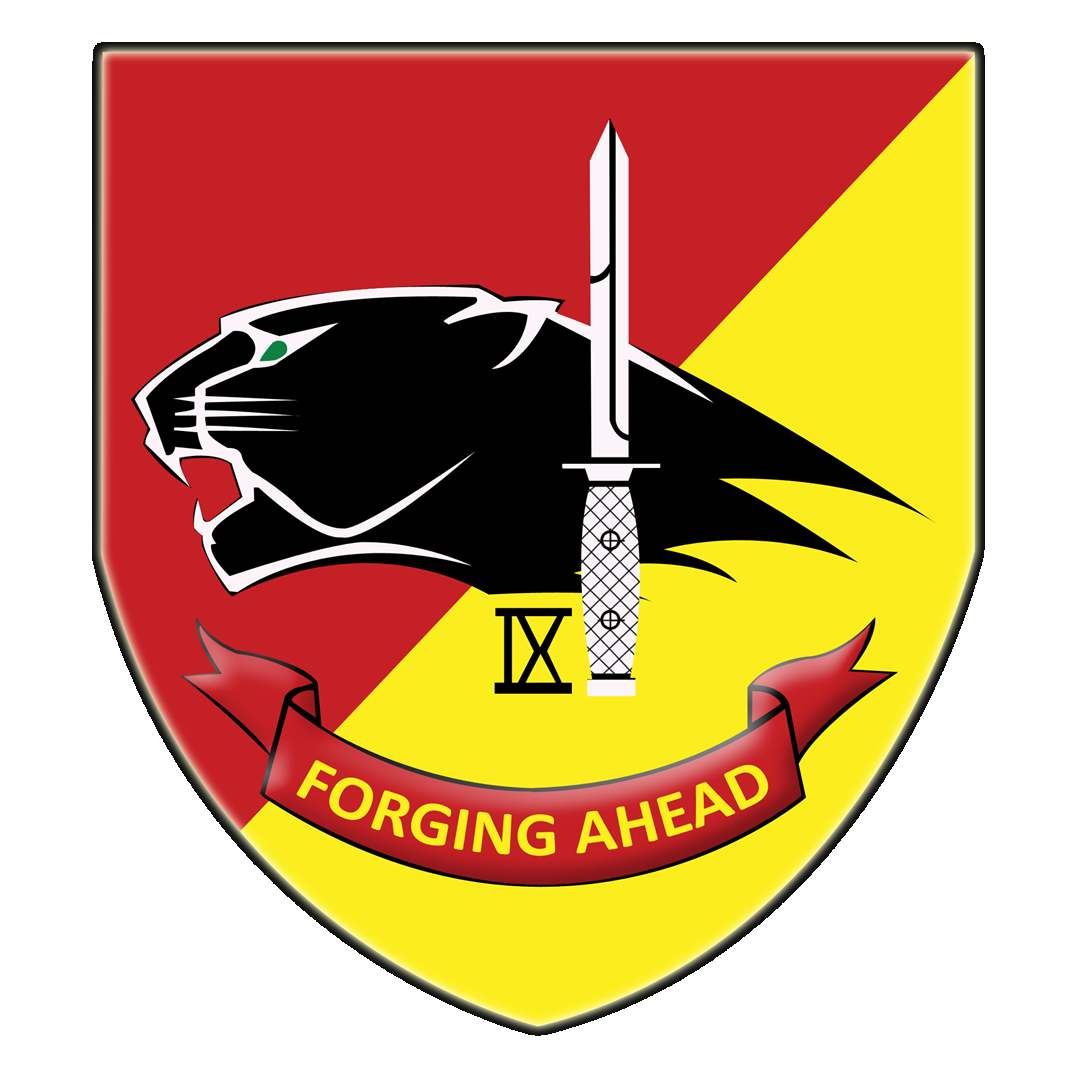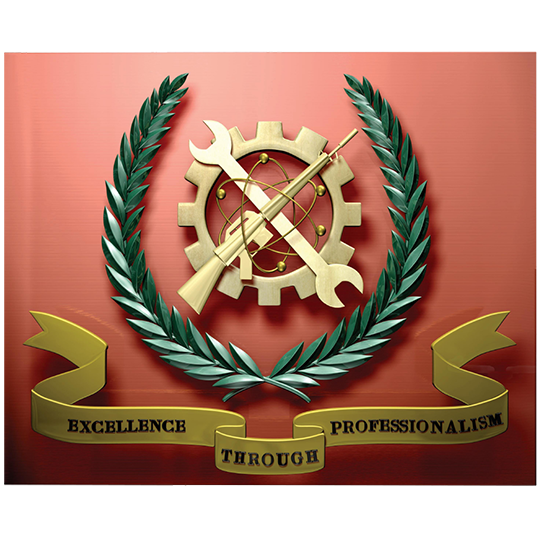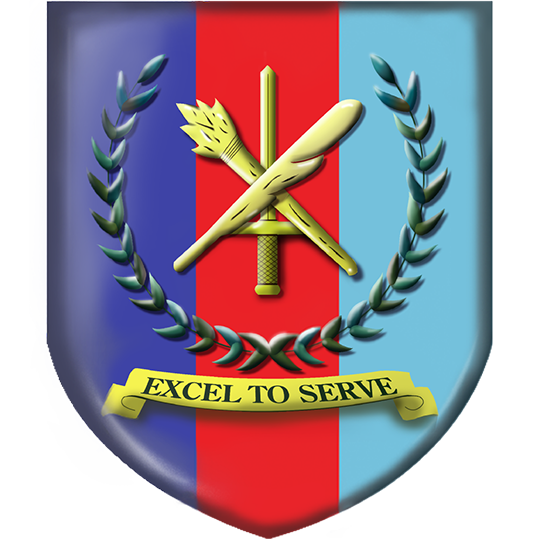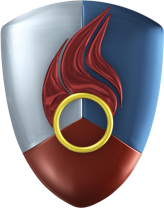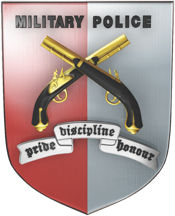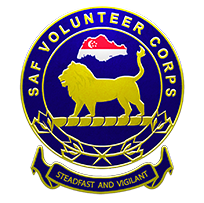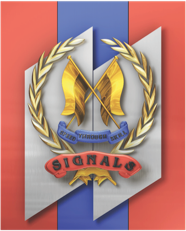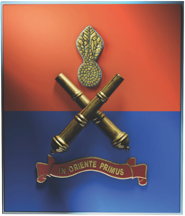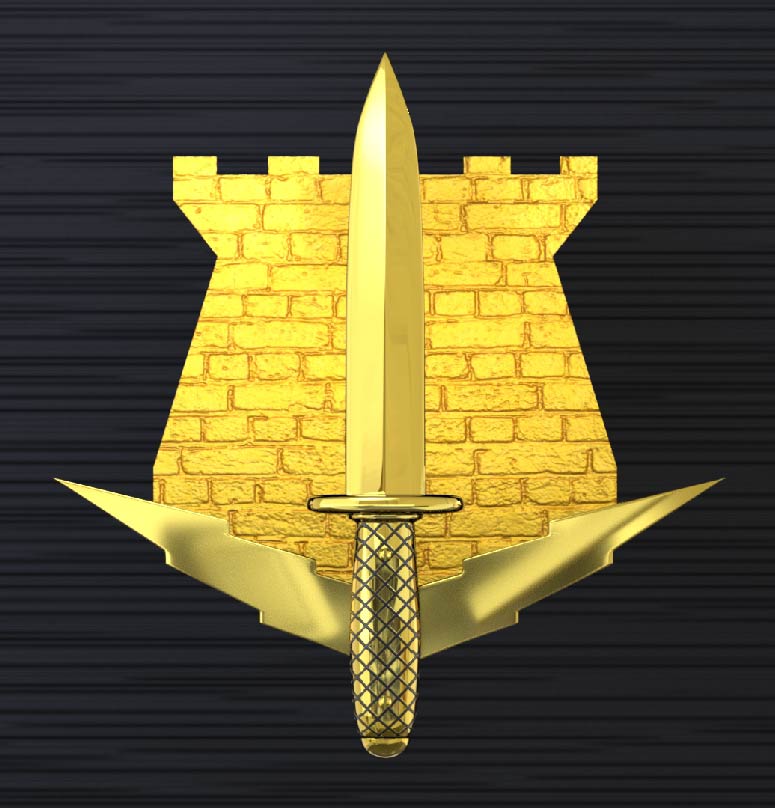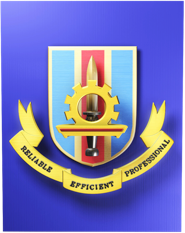 Web Content Viewer
Web Content Viewer

The primary role of the Transport formation is to plan, command and provide transport support to Our Army during peacetime, transition to war and during wartime. Ensuring that troops and supplies get to where they need to be is an essential role in keeping our forces operational.
Proficient in air, land and sea deliveries, Transport has proven itself indispensable in national and international events. The formation instils confidence as the moving force behind Our Army.
AIR OPERATION
Underslung
Underslung is an external ferrying method that involves the use of rotary-wing aircrafts such as the Super Puma and the Chinook to provide rapid movement of heavy equipment, emergency supplies and ammunition directly to the field.
Airdrop
Airdrop is another way to deliver supplies and equipment to a designated location when there are various geographical obstacles to be bypassed. Fixed – wing aircrafts like the C-130 are used to carry and deliver the rigged loads.
LAND OPERATION
It is an integral aspect of our land operation to plan and execute troop lifts, supply distribution operation and provides movement of security troopers for protection on installation operations to safeguard Singapore’s security
SEA OPERATION
Lighter Amphibious Resupply Cargo 5 Ton (LARC V)
LARC V utilise its capabilities to re-supply troops and equipment across water bodies and also to evacuates casualties during operations and disaster relief.
Sea Terminal
Sea Terminal Operation work closely with the Navy to provide logistical support through the means of sea delivery. They are able to carry out operations at wharves and piers to provide logistical support to various SAF units during overseas exercises or humanitarian assistance missions.
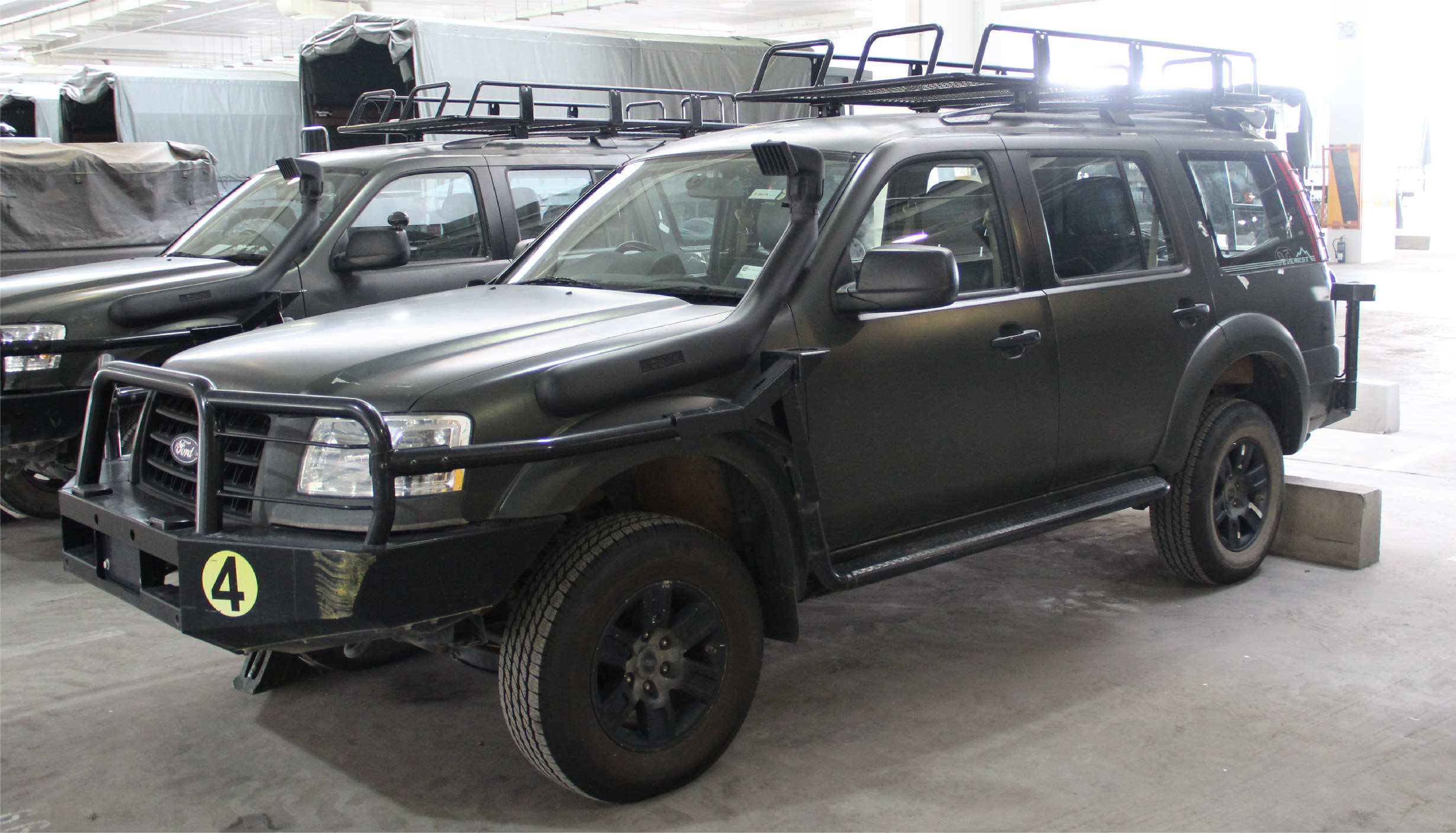

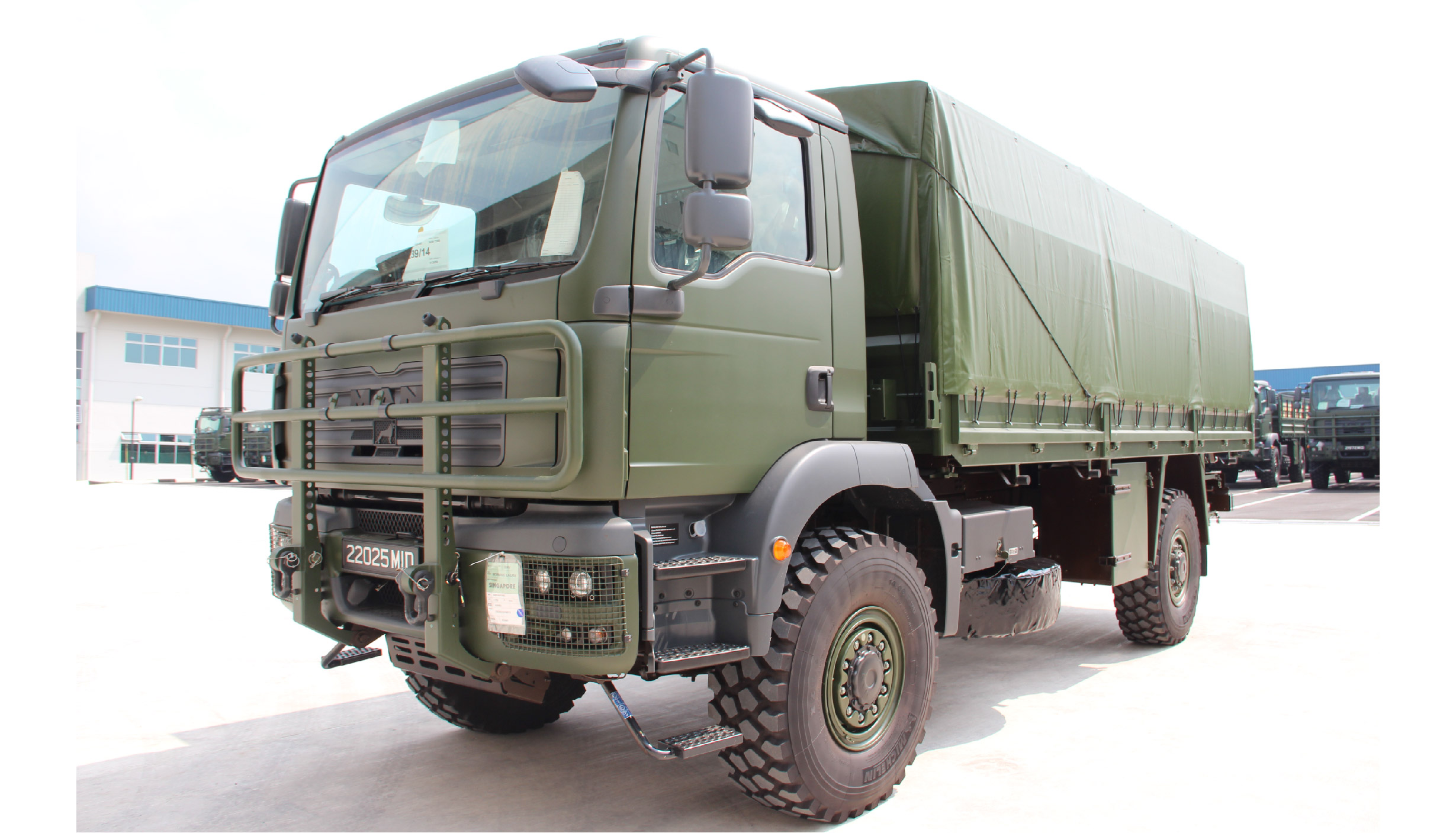
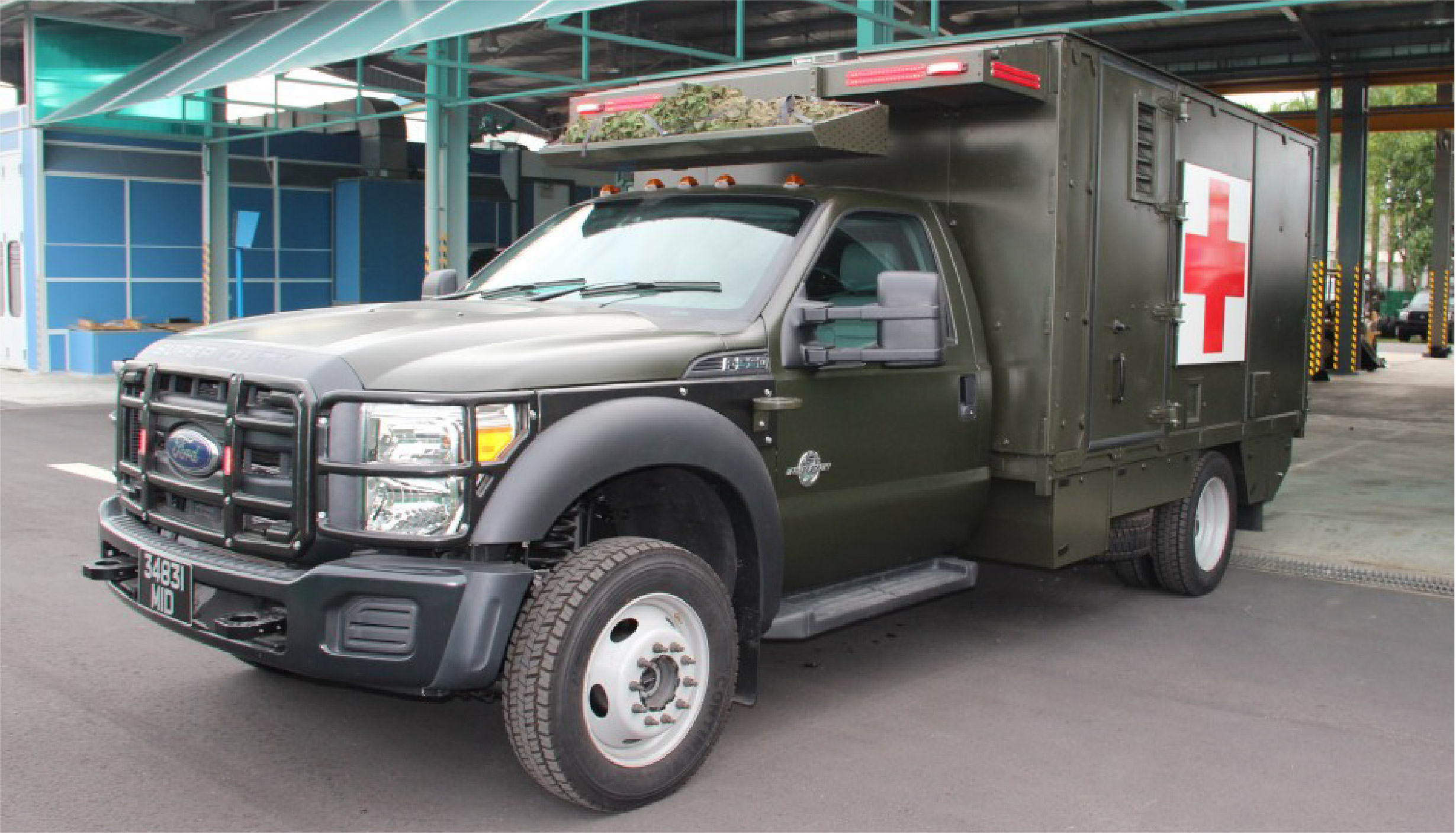
Role & Specifications
This is a 5 TON MAN TRUCK 16.284 LAERC GS. The purpose of this vehicle is to transport troopers to the destination which is required and at the same time it can help with the stores and able to put supply in the vehicle.
Length: 7.324m
Width: 2.620m
Height: 2.100m
Role & Specifications
The Combat Ambulance (F550) is equipped with advanced life-saving equipment (similar to the SDCF’s ambulances) and is able to traverse cross-country terrain. This is the main evacuation vehicle for injured servicemen in operations.
Length: 6.363m
Width: 2.385m
Height: 2.700m
The Early Years
The first Army Transport Unit was the Singapore Volunteer Artillery Cyclist section, which was formed in 1898. With the independence of Singapore, the SAF Transport Base consisting of a Light Transport Company and a Motor Transport Training Company took charge of all SAF transportation functions.
Less than 10 years ago, however, there were 86 different MT Lines in the army alone. These individual MT Lines were organic and tailored to the needs of their respective units. In 2003, the Centralised MT Lines were introduced, forming 14 divisional MT Lines. The rationale for this was to enjoy the efficiencies derived from a centralisation of resources at division/formation level.
Three years later, in 2006, these 14 divisional MT Lines were further consolidated into three transport hubs, namely Transport Hub North (or 1st SAF Transport Battalion), Transport Hub East and Transport Hub West in an army IMTL. This change was in response to the decreasing transport operator resource coupled with the ever increasing number of fleet vehicles and escalating holding costs.
Finally, in 2008, the One SAF IMTL as we know it was born with the creation of a fourth hub, Transport Hub Central (or 3rd SAF Transport Battalion). 3rd SAF Transport Battalion took over Navy's land transport office and at the same time expanded their sea terminal operational role through integration with the navy's sea terminal elements. Joint Unit's MT Lines were also integrated with the Transport Hubs.
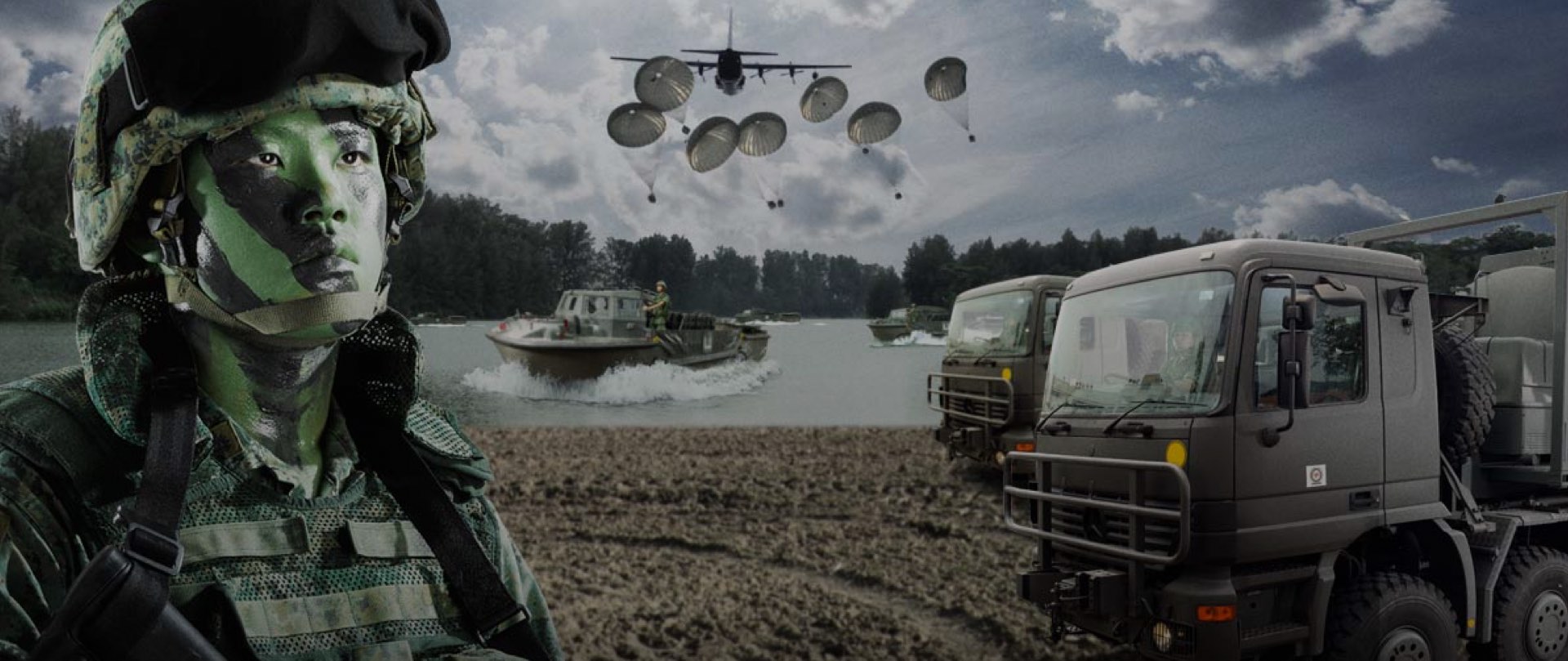

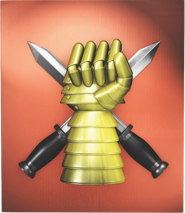
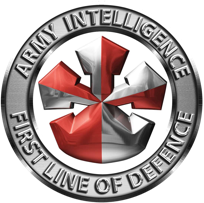
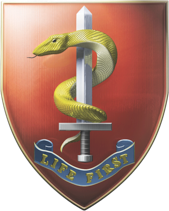
.png?sfvrsn=5f842510_1)
